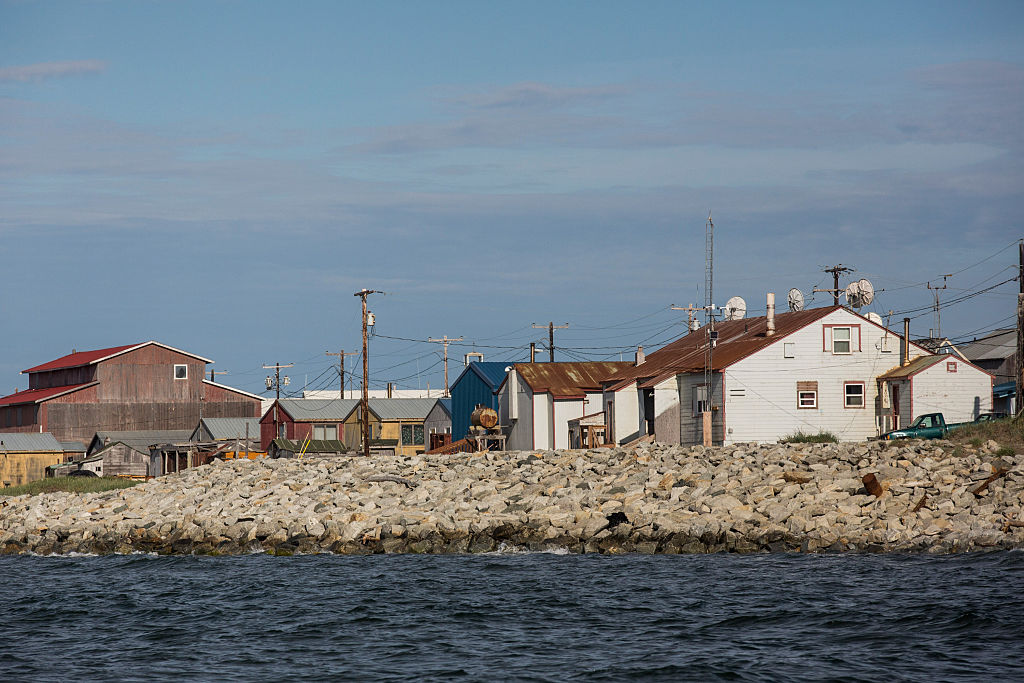White House to Eliminate Office Tasked With Relocating Native Alaskan Coastal Communities

Though the White House has not yet made a decision on whether or not to approve a new report on climate change, the Trump Administration appears to have taken decisive action against aiding Native Alaskan coastal communities that need to relocate due to global warming.
According to an article published yesterday (August 10) by The Guardian, the White House intends to eliminate the Denali Commission, a federal program tasked with crafting relocation plans—and securing Congressional funding to pay for moves—for coastal towns at risk for flooding and erosion.
As sea ice melts, 31 Alaskan communities are threatened with coastline erosion and flooding. Based on conclusions reached by scientists from 13 federal agencies in a recent climate change report, temperatures in Alaska are rising twice as quickly as the global average. While the threat to most of these communities is “imminent,” writes The Guardian, “a handful—Kivalina, Newtok, Shishmaref and Shaktoolik—are considered in particularly perilous positions and will need to be moved.”
Shishmaref is a small island city where half of its 614-person, majority Alaska Native population lives below the poverty line. Last August, the town, which is experiencing accelerated erosion rates, voted to relocate inland. As Colorlines previously reported, “President Donald Trump’s proposed federal budget omits funds residents hoped would begin their necessary relocation to the mainland roughly 20 miles away. The move is a costly $180 million, by some estimates.”
Until June 15, Joel Clement served as director of the Office of Policy Analysis at the U.S.Department of the Interior, where he focused on helping endangered Native Alaska communities like Shishmaref prepare for and adapt to climate change. He was reassigned in what he believes was retaliation from the Trump Administration for his outspokenness on climate change. In yesterday’s story in The Guardian, Clement said, “We were getting down to the brass tacks of relocation [of towns at risk] and now work has just stopped. Without federal coordination from Washington D.C., there isn’t much hope. This will take millions of dollars and will take years, and these people don’t have years.”
For Joel Neimeyer, federal co-chair of the Denali Commission, the risks of eliminating the department surpass the harm to communities already in danger. He sees the inability to plan ahead as grave. “This is about how to put a blueprint in place to fund [re]location when disaster hits,” he told The Guardian. “If Hurricane Katrina was going to hit you and you had a year to prepare, could you come up with a plan that would shorten the pain and suffering? I believe the answer is yes.”
